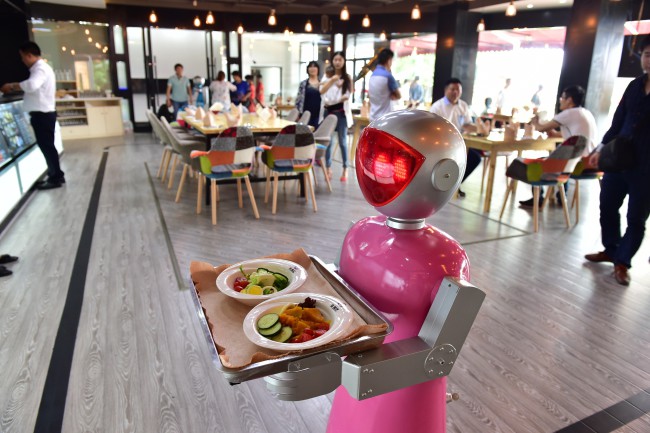In a New York Times editorial, neurobiologist Ji Xiaohua (who writes under the pen name Ji Shisan) sees the Google Glass as half full, believing jobs disappeared by new technologies and systems will be replaced by heretofore unimagined ones. Well, it’s always worked that way in the past.
The pivotal element is the timeframe of such advances. If we ease into a new normal over the rest of the century, we probably would be able to adjust, if in an often lurching manner. But what if, for example, driverless is perfected and widely implemented in the next two decades? That would mean an abrupt end of tens of millions of jobs in the U.S. alone. Degree of difficulty and mountains of bureaucracy may prevent us from finding out how we’d cope, but the scenario is possible.
An excerpt:
It seems likely that developed countries will undergo the most disruptive changes — in some economies, the service sector accounts for over 70% of gross domestic product. In developing countries, the impact on white-collar workers is unlikely to be immediate, due to slower adoption of AI technology, though such regions may experience a decline in outsourced manufacturing jobs with further advances in robotics. This sounds worrisome only because we can’t anticipate the new jobs that these technologies will bring and the new businesses that people will devise, as they always have. The future’s still bright, thanks to our creativity — our unique trait.
In July, an open letter from more than 1,000 AI and robotics researchers and other prominent figures — Elon Musk, Stephen Hawking and Steve Wozniak among them — warned against using AI in warfare and called for a ban on autonomous weapons. Even that technology is not as advanced as the sentient robots envisioned in the 2015 movies Ex Machina or Chappie. These movies imagine “strong” AI, or AI that is generalized, and able to carry out most human activities, as opposed to “weak” or narrow AI, which is task-specific. No one can say whether strong AI will be created, and if so, when. I asked some Chinese AI scientists about it, and given their responses, I may as well have been asking about the possibility of alien life.
That would be a world in which perhaps even child care jobs are threatened, but thank goodness we have many years before the dawn of strong AI-directed robots. In that future, we may not need to work very hard to support ourselves. The robots will be doing most of the labor, while we will have the time and leisure to explore what it is to be human.•
Tags: Ji Shisan, Ji Xiaohua

